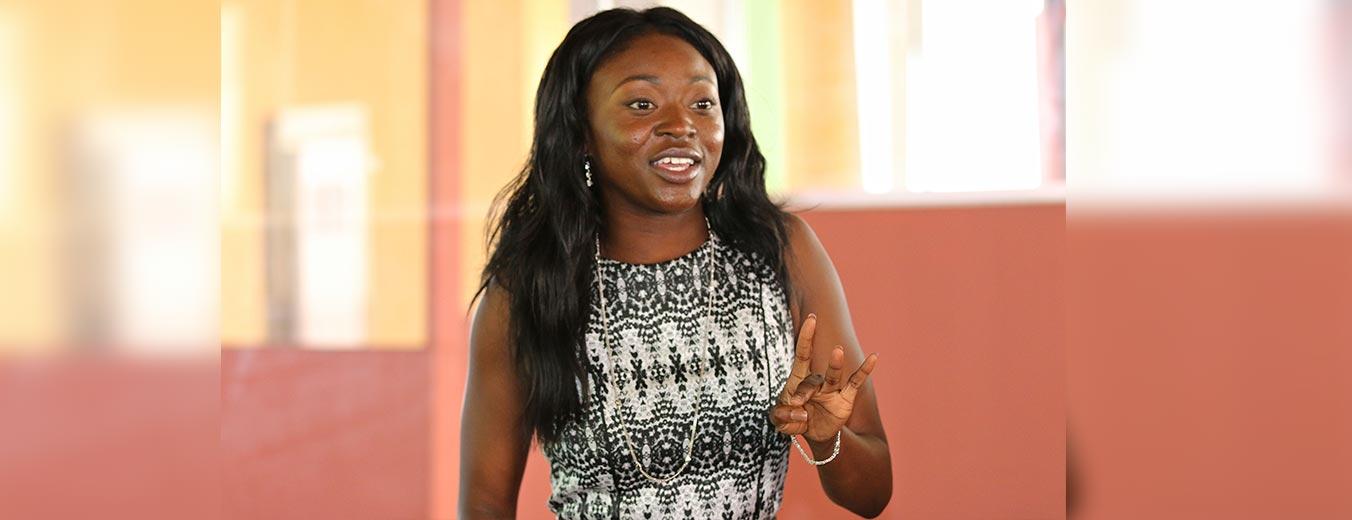A role model for African business women
December 11, 2016

Young female African entrepreneurs must speak out and act as role models to inspire other women to shake up a profession dominated by white men, says the co-founder of a business that helps female entrepreneurs in Nigeria.
From securing capital to attracting interest in industries like hair and beauty, young African women aspiring to be the global business leaders of tomorrow face a range of obstacles, said Afua Osei, co-founder of She Leads Africa.
But their biggest challenge could be lack of confidence, said the 29-year-old, citing compilations of top entrepreneurs, rich lists and conference panels as examples of successes which tend to feature few young women from Africa.
“It’s hard for young female African entrepreneurs to feel like they fit in, if they can’t see any role models out there,” Osei said before speaking on a panel about female entrepreneurs at Trust Women, an annual women’s rights and trafficking conference organised by the Thomson Reuters Foundation.
She Leads Africa helps young African women to advance their careers, and provides entrepreneurs with the knowledge, networks and financing to build and scale up their businesses, Osei said.
The digital media company offers online classes, webinars and Facebook Q&A sessions with business experts, and organises events ranging from an annual pitching competition to networking boot camps in cities such as Accra, London, Nairobi and New York.
Osei hailed the boot camp in London as her proudest moment, having achieved her goal of building a global digital platform.
“We welcomed more than 150 young women who connected with us online, believed in our story and mission, and were willing to invest their time and money in us.”
Born in Ghana, Osei grew up and went to university and business school in the US.
She had the idea for She Leads Africa after working at a mobile technology firm in Lagos, Nigeria’s commercial capital. She realised women in Nigeria were much less likely to speak out at work compared with those in America, and that they had far fewer professional development opportunities.
“A friend told me, ‘If you want to make an impact, you can do so in Washington, but you will only reach thousands of people. In Africa, you can affect millions of people’.”
Shortly after Osei and her partner, Yasmin Belo-Osagie, founded the company in 2014, they held an entrepreneurship contest which drew 400 applications from 27 countries. The winner, Cherae Robinson, was awarded $10 000 for Rare Customs, an app for tourists to book experiences in Africa, which has secured partnerships with major hotels and airlines, according to Osei.
But Osei does not dwell on individual success stories.
“My goal is to scale up to reach millions of young women across the world,” she said.
One way is to help young women access capital to start a business, get them included in investment networks, and fight against biases held by white male entrepreneurs, Osei said.
She recalled working with a female-led hair-care start-up that generated more than $2 million a year in revenue, yet was dismissed by several male entrepreneurs because they did not believe that a hair and beauty business could be successful.
Businesses, media organisations and governments must all play a role in challenging the stereotypical image of not only entrepreneurs, but also African women, said Osei.
“People associate Asian women with businesswomen in suits, but think of African women as carrying baskets on their heads and babies on their backs,” she said.
“We need to tell a different story, a much broader and more realistic one, if we want to see more diversity in the future.” – Thomson Reuters Foundation


